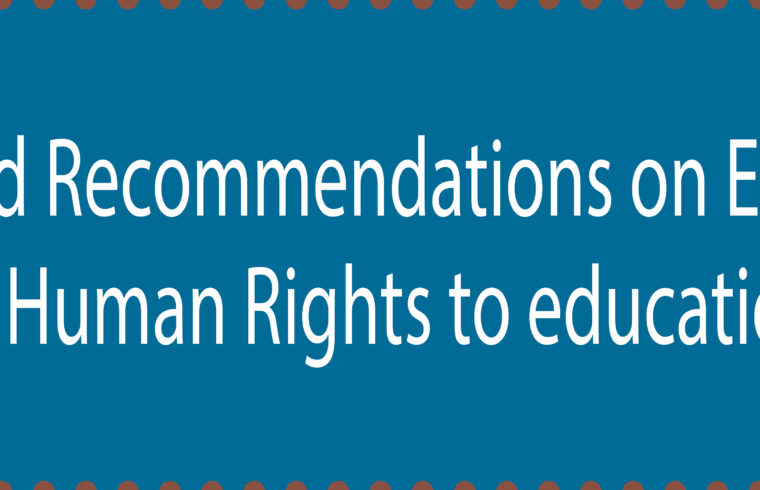Nisha Kalapathi
Mumbai – INDIA
In India, Article 26 of the Universal Declaration of Human Rights states that everyone has a right to education and that Education shall be directed to the full development of the human personality and to the strengthening of respect for human rights and fundamental freedoms.
The goal of a human rights-based approach to education is simple: to assure every child a quality education that respects and promotes her or his right to dignity and optimum development.
Education is the pathway for the progress of any nation. It is through proper education, an individual gets aware about his rights and duties. It has potential to inculcate and imbibe human rights values. It is through education human rights are actually put into practice. Human rights education activities should convey fundamental human rights principles, such as equality and non-discrimination, while affirming their interdependence, indivisibility and universality. Human rights helps to give access to education even for below poverty level individuals and thus provide opportunities to bring the change in future as this individual not going to show a progress in his personal life but also going to represent the state /country which helps for better economy of the same.
The 86th Constitutional amendment making education a fundamental right was passed by Parliament in 2002 under the article 21A. The Right of Children to Free and Compulsory Education Act (RTE Act), a law to enable the implementation of the fundamental right was passed by Parliament in year of 2009.. In, India, UNESCO has a role in human rights laws. It talks about the Indian human rights education system and UDHR’s (Universal Declaration of Human Rights) provisions support it & UNESCO provides guidelines in the context of Human Rights in India.
Human rights to education is interconnected to other rights such as
• Gender equality – As the right to education is not discriminated between the genders
• Social and moral education – Spiritual, moral, social and cultural (SMSC) education helps children and young people to develop personal qualities, which are valued in a civilised society
• Sustainable development – it helps to meet the present requirements without compromising the future generation’s needs
• Intercultural Education-its is the response to classroom diversity aiming to go beyond passive coexistence, to achieve a developing and sustainable way of living together in multicultural societies through the creation of understanding of, respect for and productive dialogue between the different groups.
• Anti-racism-it helps to create a bond and dissolve the discrimination among the people with different creed, color, culture, caste, etc. and thus bringing humanity among the mankind.
In India, the word guru is given more respect than the God himself as it’s said its the knowledge given by guru that helps the child to live his life with serenity. It’s also observed that the birth date of the second President of India, Sarvepalli Radhakrishnan, 5 September 1888, has been celebrated as Teacher’s Day since 1962 as Radhakrishnan’s concern for experience and his extensive knowledge of the Western philosophical and literary traditions has earned him the reputation of being a bridge-builder between India and the West. He often appears to feel at home in the Indian as well as the Western philosophical contexts, and draws from both Western and Indian sources throughout his writing. Because of this, Radhakrishnan has been held up in academic circles as a representative of Hinduism to the West. His lengthy writing career and his many published works have been influential in shaping the West’s understanding of Hinduism, India, and the East.
India has a largest population and largest democracy so that if the republic governmentis not aware of protection of individual’s human rights, it can be a danger for the democracy. For securing democracy in India, human rights education should be compulsory, through this,peoples will be aware about their basic rights.
It’s not only important to educate the people for their bright future but this will eventually make the country develop and progress and thus make the world a safe place to live in.











